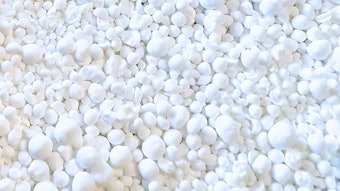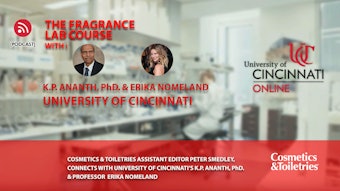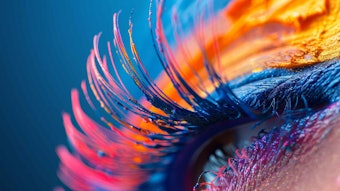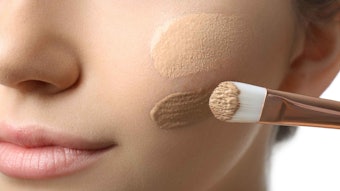Skin care companies have taken notice of a newer demographic—men. In the past, male grooming primarily consisted of shaving products and deodorants, but as companies launch men-specific products, this market segment is recognizing that skin care is no longer just for women. Euromonitor has shown, for example, that per capita spending on skin care for men in Western Europe rose 134% between 1997 and 2002, making it the second largest male skin care market in the world next to the Asia Pacific region.
Although scarce in the past, antiaging products for men have become a significant presence as men join women in the conquest to feel and look younger. Canadian cosmeceutical company B. Kamins, Chemist, has introduced an antiaging and soothing eye gel, as well as an antiaging daily moisturizer SPF 15, to its men’s skin care line. Antiaging products for men often are considered the same as for women; however, the company’s founder and CEO, pharmaceutical chemist Ben Kaminsky, says they are not.
Aging in Men
There are two sets of aging principles that apply to both men and women, extrinsic and intrinsic, according to Kaminsky. What sets men and women apart is how they age. “Intrinsic is 20% of total aging. … It really is your genes and it is not treatable with skin care,” said Kaminsky. Extrinsic aging, or aging caused by the environment, however, is treatable with skin care products. Extrinsic aging may include damage from the sun, wind or smog among other environmental factors.
In males, extrinsic aging can be particularly damaging to skin. “Males historically have taken part in sports and are outdoors more,” Kaminsky explained. “And although they are out in the sun more, they are not protected at all times.” Outdoor exposure to elements produces more noticeably damaging extrinsic aging in men than in women, according to Kaminsky, thus substantiating the need for specialized antiaging products for men.
Formulating for Men
A primary difference between male and female antiaging products, according to Kaminsky, is the base. Men typically do not want heavy or tacky products. To eliminate the heaviness in a formula while providing moisturization, antiaging products for men are formulated with water-soluble moisturizing ingredients; for example, physiological humectants such as glycerin, sodium lactate, urea or maple isolate—an ingredient developed in the company’s laboratory. “These are all beautiful natural moisturizing ingredients that are soluble in water,” said Kaminsky.
Also, he added that men have thicker skin than women and produce more oil than women. “[Formulators should] use preparations that contain very little or no oil. … If the patient’s skin already is producing oil, you certainly do not want to add more woes,” said Kamisky. Antiaging products should therefore be formulated with ingredients that give the product slip without adding heavy oils.
As Kaminsky has said, men typically have thicker skin than women, but some have thicker skin than other men. In that instance he recommends the use of an exfoliant. “If [men] have super thick skin, you would use materials to help with exfoliation or cell turnover, depending on the age of the individual. These would include alpha and beta hydroxy acids,” he said.
Simplicity of use and multifunctionality are two factors that are key to creating an antiaging product for men. “Men try to limit the number of products they use,” said Kaminsky. Therefore, antiaging products should provide numerous functions. “[Antiaging products] will act as moisturizers, they will act as antiaging preparations, they will act as sunscreens, and some of them will treat a sallow complexion,” he said.
The Future of Antiaging for Men
The typical male using antiaging products has changed over time, according to Kaminsky. Men are not waiting until they see the problem, but are instead buying products to prevent aging. “Physically and sexually active men want to look good,” said Kaminsky, who noted that although there are more men using skin care products, they are still few in numbers. Overall health is another reason Kaminsky believes that men are becoming interested in skin care.
The future of men’s antiaging products and skin care in general is cloudy. The industry is growing, but at a rate that no one seems to know. “Hopefully men will recognize that using skin care should be a part of their daily regimen,” said Kaminsky. “Although many of them now know about it, some of them still have not tried it.”










